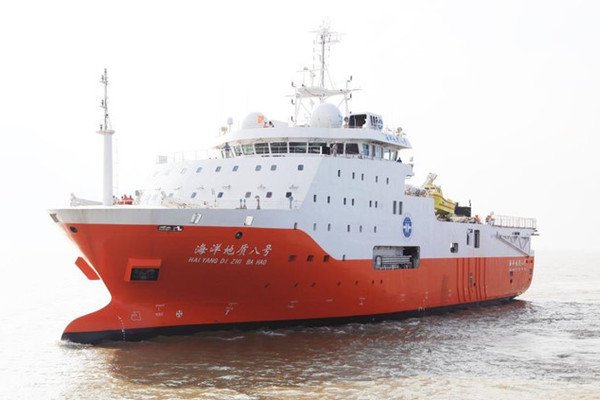 |
|
China's Haiyang Dizhi 8 seismic survey ship, escorted by coast guard and militia vessels, illegally infringed upon Vietnam's exclusive economic zone (EEZ).
|
Recent developments in the East Sea (also known as the South China Sea) - one of the busiest shipping routes in the world - are alarming. Peace and stability in Southeast Asia are at risk of being broken.
In early July, China's Haiyang Dizhi 8 seismic survey ship, escorted by coast guard and militia vessels, illegally violated Vietnam's lawful exclusive economic zone (EEZ) in the East Sea.
The Philippines and Malaysia also face similar repression from China in the waters.
Who is responsible for the developments? Is there any respect for the law here?
Before seeking answers to these questions, it is important to understand the 1982 UNCLOS - a widely ratified convention - with the stipulation that every maritime state has its own 200-mile exclusive economic zone and 12 nautical miles territorial sea or continental shelf.
China, Vietnam, Malaysia, the Philippines and Brunei have all signed the UNCLOS and ratified a long time ago. It is the same for Indonesia. The UNCLOS prohibits the use or threat to use of force in dealing with maritime disputes.
China’s act has violated the UNCLOS regulations. China made a claim covering more than 90% of the East Sea by introducing the so-called controversial nine-dash line - referring to a vague delimitation. The claim made by China also refers to "historic rights" that are not mentioned in international maritime rules, which overlap with claims of island states and coastal states including Vietnam, the Philippines, Malaysia, Brunei and even Indonesia.
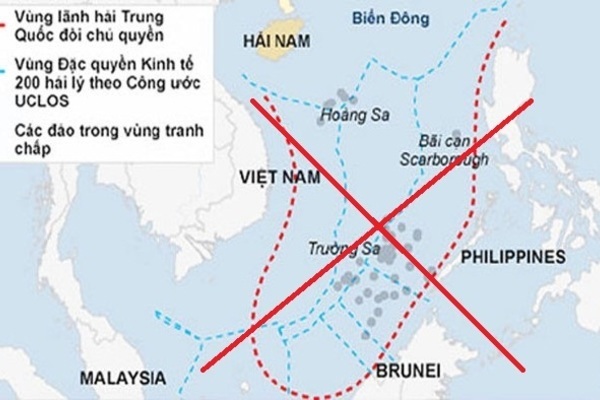 |
|
China claims over 90% of the East Sea by making the so-called “nine-dash line”.
|
China's entire sovereignty claim based on the nine-dash line and historic rights were rejected by the Permanent Court of Arbitration (PCA) in The Hague in 2016. However, Beijing does not accept this and continues to perform their sovereignty claims through illegal and coercive actions.
China has built many illegal artificial islands and established military facilities on them. China has also obstructed fishing and natural resource exploitation activities of other claimant states in their lawful territories.
Infringing upon Vietnam's exclusive economic zone
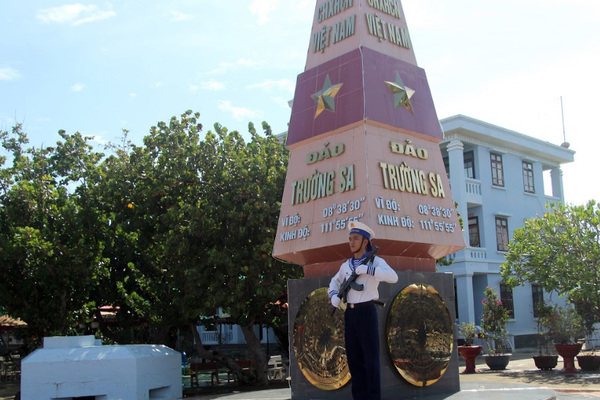 |
|
Vietnam is determined to protect its legitimate rights and interests, while contributing to peace, security and security in the region and the world. Photo: Doan Bong
|
The latest incident taking place in Tu Chinh (Vanguard Bank) clearly shows the nature of China's actions. The Vanguard Bank is located within Vietnam's exclusive economic zone, less than 200 nautical miles from the Vietnamese coast, while it is about 600 nautical miles from China's maritime border. But China used the so-called nine-dash line to declare that the Vanguard Bank is within its EEZ.
In an effort to obstruct Vietnam's oil exploration activities, China has deployed the Haiyang Dizhi 8 seismic survey ship and heavily armed escorts.
Vietnam has repeatedly asked China to immediately withdraw all the vessels from Vietnam’s Vanguard Bank and not take any action to increase tensions and threaten peace, stability and security in the East Sea as well as in the region.
“With determination to protect its legitimate rights and interests, and to contribute to peace, security and security in the region and the world, Vietnam is always ready to resolve any disagreements by peaceful and appropriate measures, in line with international law,” said the spokesperson of the Vietnamese Foreign Ministry Le Thi Thu Hang in recent press conferences.
This is not the first time China has made such acts. In 2017 and 2018, China took action to prevent Vietnam from legal oil and gas exploration activities.
Recently, a Chinese ship rammed into and sank a Philippine fishing boat when it was moored at the Reed Bank, about 160km from Palawan Island.
Hundreds of armed Chinese vessels have operated regularly and illegally in the waters around the Thitu Island, threatening the activities of Filipino fishermen.
Manila also voiced against the illegal movement of four Chinese warships and Liaoning aircraft carrier through the Philippine waters.
This May, Chinese coast guard vessels patrolled around the Luconia Shoal within the EEZ of Malaysia.
International condemnation
 |
|
Vietnam’s DK1 rigs. Photo: Doan Bong
|
The US has criticized China's provocative and unilateral acts. “China’s reclamation and militarization of disputed outposts in the East Sea, along with other efforts to assert its unlawful SCS maritime claims, including the use of maritime militia to intimidate, coerce, and threaten other nations, undermine the peace and security of the region,” the US State Department spokesman Morgan Deann Ortagus told reporters recently in Washington.
Japan, the EU, France, Germany, the United Kingdom, Canada, Australia and other countries condemned China's unilateral actions in the East Sea and called for a rule-based order.
The International Association of Democratic Lawyers (IADL) also issued a statement condemning China for violating Vietnam's legal rights in the Vanguard Bank. "This action clearly violates Vietnam's sovereignty, sovereignty rights and jurisdiction as determined under the 1982 UNCLOS," the IADL stated.
“IADL asks China to quickly stop its infringement of Vietnam's sovereignty, sovereignty rights and jurisdiction, stop conducting activities that make the situation more complicated and increase tensions among the parties, and start focusing on building trust to maintain security, peace and stability in the East Sea in particular and the region in general."
IADL, founded in 1946, is a non-governmental organization that supports and upholds international law, protects the rights of peoples for development, economic equality and access to scientific achievements as well as natural resources. IADL is an advisor at the United Nations Economic and Social Council (ECOSOC).
Despite the condemnation of the international community, Beijing has been conducting many illegal and provocative activities in the East Sea.
What can ASEAN and the international community do?
The first and foremost is condemning China's unilateral provocation. These acts violate international laws related to EEZ and continental shelf of Southeast Asian countries in the East Sea.
The international community needs to put pressure on China to force it to immediately withdraw the Haiyang Dizhi 8 and other ships from the Vanguard Bank to reduce tensions.
A common awareness needs to be reached among ASEAN countries. This organization needs to play a central role and lead initiatives to maintain peace and stability in the region.
If peace is maintained, both ASEAN and China will prosper. It is necessary to quickly complete the Code of Conduct of the parties in the East Sea (COC). All we need is an effective, legally-binding COC based on the 1982 UNCLOS and other international rules to ensure freedom of maritime and air navigation in the East Sea.
IADL has urged all claimants in the East Sea, which have signed the UNCLOS, to adhere to and respect international maritime regulations.
Without respecting the rules, only the big will benefit, while competition and tensions will rise. This is not an option. Peace is the top priority.
Thai An
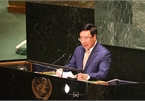
Vietnam urges relevant parties in East Sea to respect international law
Deputy Prime Minister, Foreign Minister Pham Binh Minh delivered his remarks “Revitalizing multilateralism for sustainable peace and development” at the General Debate of the 74th Session of the UN General Assembly in New York yesterday.
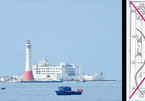
The U-shaped seamless line in the East Sea: China's new trick for illegal purposes
Researchers have questioned whether the "new map of the People’s Republic of China" is a fabrication that serves illegal purposes.
 China, Vietnam, Malaysia, the Philippines and Brunei all approved the United Nations Convention on the Law of the Sea 1982 (UNCLOS). This Convention prohibits the use of and threat of using force in the settlement of disputes at sea.
China, Vietnam, Malaysia, the Philippines and Brunei all approved the United Nations Convention on the Law of the Sea 1982 (UNCLOS). This Convention prohibits the use of and threat of using force in the settlement of disputes at sea.